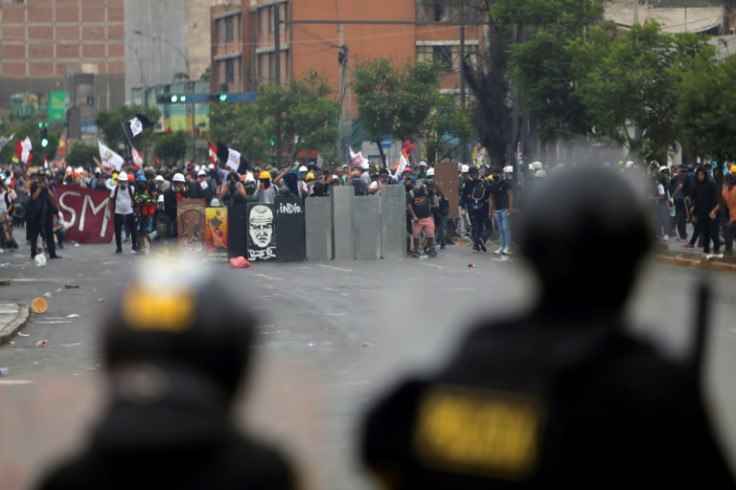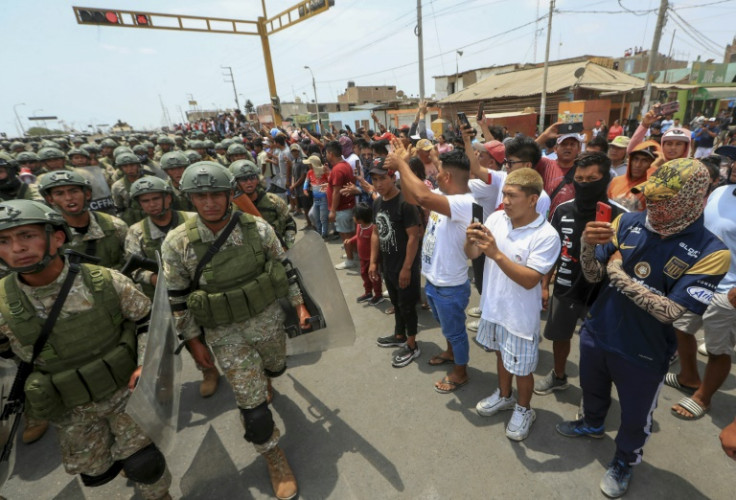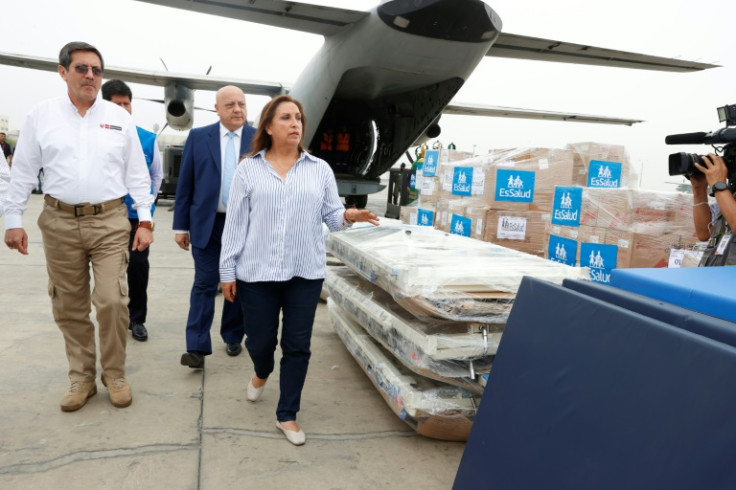Protesters Stand Ground As Peru Congress Mulls Early Elections

Protesters who have brought parts of Peru to a standstill for weeks closed in on Lima's international airport Tuesday as lawmakers mulled bringing elections forward in a bid to end the deadly mobilization.
The South American country has been embroiled in a political crisis with near-daily demonstrations since December 7, when then-president Pedro Castillo was arrested after attempting to dissolve Congress and rule by decree.
In seven weeks of demonstrations, 48 people -- including one police officer -- have been killed in clashes between security forces and protesters, according to the human rights ombudsman's office.
Protesters demand immediate elections, the dissolution of Congress, a new constitution, and the resignation of President Dina Boluarte, who as his vice president took over with Castillo gone.
As Congress prepared for a second consecutive day of debate on a bill to bring the election forward, protesters gathered near the airport in the capital.
Police deployed in large numbers to keep them out.
Other demonstrators amassed in towns of Peru's poor, rural south -- the epicenter of the protests -- chanting "Dina, resign."
The unrest is being propelled mainly by southern, Indigenous Peruvians who perceive Castillo as an ally in the fight against poverty, racism and inequality.
Roadblocks erected by protesters have caused shortages of food, fuel and other basic commodities in several regions of the Andean nation.
Last month, lawmakers moved elections, originally due in 2026, up to April 2024, but as protesters dug in their heels, Boluarte called for a vote this year instead.
Congress rejected her proposal late Friday.
On Monday, lawmakers again failed to reach an agreement after seven hours of discussions.
Proceedings were scheduled to resume Tuesday morning but were delayed to the afternoon.
If lawmakers again refuse to advance elections, Boluarte has said she will propose a constitutional reform allowing a first voting round to be held in October and a runoff in December.
According to a survey by the Institute of Peruvian Studies, 73 percent of citizens want elections this year.
Tuesday's parliamentary debate would coincide with the appointed hour for fresh protests called by union leaders and rural organizations in central Lima under the slogan: "The Great March, Dina resign now".
For union leader Geronimo Lopez, a protest coordinator, the stalemate at the political level was indicative of a Congress "clinging to stay in office."
"There is no political will to listen to the platform of struggle of the people," he said.
The Organization of American States on Monday expressed its "dismay" at reports of violence committed on both sides, urging peaceful protest and dialogue.
It also called in a statement for the "prompt holding of free, fair and transparent general elections with international electoral observation."
Apart from those who have died in clashes, 10 civilians -- including two babies -- died when they were unable to get medical treatment or medicine due to roadblocks, according to the ombudsman's office.
The protest movement has also affected Peru's vital tourism industry, forcing the repeated closure of the world-renowned Machu Picchu Inca citadel ruins.
Peru's Las Bambas copper mine -- responsible for about two percent of global metal supply -- said Monday it would have to halt production from Wednesday unless the roadblocks were lifted.
Soldiers were on Tuesday guarding a section of the Pan-American Highway that connects several major cities and which they cleared of roadblocks with the help of police the day before.


© Copyright AFP 2024. All rights reserved.




















